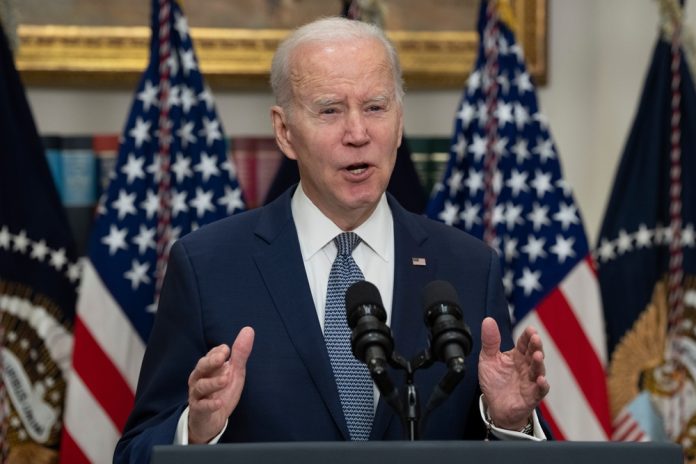In a last-minute vote to prevent a devastating national default, the Senate approved a bill suspending the debt ceiling on Thursday evening.
Having now cleared the House and Senate, the bill authorizes the U.S. Treasury to borrow unlimited sums of money until 2025, allowing the department to fund interest payments to the country’s bondholders without pulling from other government programs. Failure to do so would have almost certainly resulted in a credit downgrade, completely nullifying the nation’s efforts to recover from the COVID pandemic. The legislative approval follows a particularly tense round of negotiations between Republican lawmakers and the Biden Administration, and while the law rallied enough bipartisan votes to pass through Congress, this support was far from universal.
Instead, detractors on both sides of the political aisle were vocal before and after the legislation departed for the President’s desk. In the House, 71 Republican and 46 Democrat representatives voted against the law, representing approximately 32% and 22% of their respective parties. In the Senate, 31 Republicans and four Democrats also voted no, representing roughly 63% and 8% on each side. In other words, out of the 532 right and left-wing politicians making up Congress (excluding the three independent members of the Senate), over a quarter declined to stop a national default, a decisive majority of which shared their party with the act’s original author: House Speaker Kevin McCarthy.
While a U.S. default is a rare occasion, concerns over whether the government would suspend the debt ceiling began to take shape almost as soon as Republicans took control of the House of Representatives in November 2022. As the newly-elected Speaker, McCarthy promised, among other things, to reduce government spending. However, upon attempting to use the debt limit as leverage for passing budget cuts, the Speaker was immediately met with intense opposition from the White House, which declined to participate in any negotiations that could result in a national default.
This refusal originates from President Biden’s experience during the Obama Administration. In 2011, a similar conflict between the executive and legislative branches, this time centered on the Affordable Care Act, once again placed the nation at risk of missing its interest payments. While the government eventually struck a deal to avert the crisis, the mere threat of a default had placed an extraordinary strain on the economy. This occasion convinced both the former and current U.S. chiefs to take a hardline stance against such negotiations: from their newly formed perspective, the federal government held a responsibility to avoid a default at all costs under the 14th Amendment. As such, suspending the limit was not a choice but rather a legal obligation, making any opposition to this measure a failure of duty.
President Biden’s view on the matter remained firm, even as political tensions heated, until April of this year. At this point, McCarthy had succeeded in passing a fiscal plan through the House that both guaranteed a debt-ceiling suspension and proposed broad budget cuts to several government programs, including the military. As the bill effectively removed the threat of a default, the White House agreed to finally enter negotiations with the Speaker just two months before the deadline.
These discussions resulted in the legislation’s final, revised form, the same one approved on Thursday evening. Although the nation’s financial future is now less opaque, the internal conflict within the political system is all the more transparent. The government’s struggle to solve pressing issues in a timely manner has often been a chief source of stress for American consumers and producers. While the U.S. has always managed to “live to fight another day,” there is little chance that the economic pressures arising from its political indecision do not have a breaking point.



